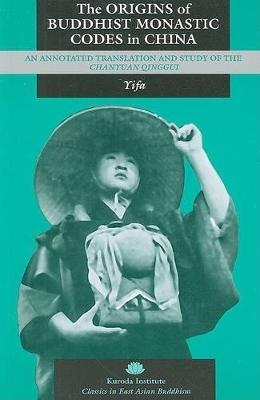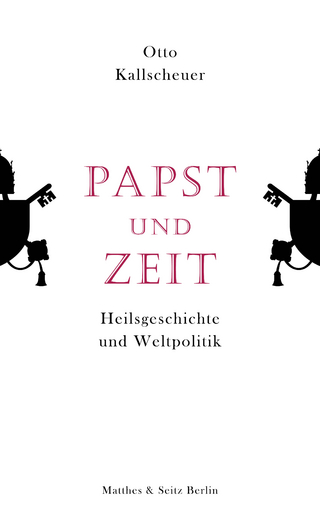
The Origins of Buddhist Monastic Codes in China
An Annotated Translation and Study of the Chanyuan Qinggui
Seiten
2009
University of Hawai'i Press (Verlag)
978-0-8248-3425-8 (ISBN)
University of Hawai'i Press (Verlag)
978-0-8248-3425-8 (ISBN)
The 12th-century text Chanyuan qinggui (Rules of Purity for the Chan Monastery) provides a wealth of detail on all aspects of life in public Buddhist monasteries during the Sung (960-1279). This title contains a complete translation of this influential monastic code.
The Origins of Buddhist Monastic Codes in China contains the first complete translation of China’s earliest and most influential monastic code. The twelfth-century text Chanyuan qinggui (Rules of Purity for the Chan Monastery) provides a wealth of detail on all aspects of life in public Buddhist monasteries during the Sung (960–1279).
Part One consists of Yifa’s overview of the development of monastic regulations in Chinese Buddhist history, a biography of the text’s author, and an analysis of the social and cultural context of premodern Chinese Buddhist monasticism. Of particular importance are the interconnections made between Chan traditions and the dual heritages of Chinese culture and Indian Buddhist Vinaya. Although much of the text’s source material is traced directly to the Vinayas and the works of the Vinaya advocate Daoan (312–385) and the Lü master Daoxuan (596–667), the Chanyuan qinggui includes elements foreign to the original Vinaya texts―elements incorporated from Chinese governmental policies and traditional Chinese etiquette. Following the translator’s overview is a complete translation of the text, extensively annotated.
The Origins of Buddhist Monastic Codes in China contains the first complete translation of China’s earliest and most influential monastic code. The twelfth-century text Chanyuan qinggui (Rules of Purity for the Chan Monastery) provides a wealth of detail on all aspects of life in public Buddhist monasteries during the Sung (960–1279).
Part One consists of Yifa’s overview of the development of monastic regulations in Chinese Buddhist history, a biography of the text’s author, and an analysis of the social and cultural context of premodern Chinese Buddhist monasticism. Of particular importance are the interconnections made between Chan traditions and the dual heritages of Chinese culture and Indian Buddhist Vinaya. Although much of the text’s source material is traced directly to the Vinayas and the works of the Vinaya advocate Daoan (312–385) and the Lü master Daoxuan (596–667), the Chanyuan qinggui includes elements foreign to the original Vinaya texts―elements incorporated from Chinese governmental policies and traditional Chinese etiquette. Following the translator’s overview is a complete translation of the text, extensively annotated.
Venerable Yifa is a nun belonging to the religious order Fo Guang Shan, which was founded by Venerable Master Hsing Yun in Taiwan and seeks to make Buddhist practice relevant to contemporary life. Yifa lives at Hsi Lai temple in Hacienda Heights, California. Venerable Yifa is also a contributor to Benedict's Dharma: Buddhists Reflect on the Rule of St. Benedict.
| Zusatzinfo | 20 illustrations |
|---|---|
| Verlagsort | Honolulu, HI |
| Sprache | englisch |
| Gewicht | 547 g |
| Themenwelt | Literatur ► Essays / Feuilleton |
| Geschichte ► Teilgebiete der Geschichte ► Religionsgeschichte | |
| Geisteswissenschaften ► Religion / Theologie ► Buddhismus | |
| Sozialwissenschaften ► Soziologie ► Spezielle Soziologien | |
| ISBN-10 | 0-8248-3425-9 / 0824834259 |
| ISBN-13 | 978-0-8248-3425-8 / 9780824834258 |
| Zustand | Neuware |
| Haben Sie eine Frage zum Produkt? |
Mehr entdecken
aus dem Bereich
aus dem Bereich
Von den Anfängen bis zur Gegenwart
Buch | Hardcover (2022)
C.H.Beck (Verlag)
CHF 47,60
Herkunft, Blüte, Weg nach Osten
Buch | Hardcover (2024)
C.H.Beck (Verlag)
CHF 55,90
Heilsgeschichte und Weltpolitik
Buch | Hardcover (2024)
Matthes & Seitz (Verlag)
CHF 61,60


